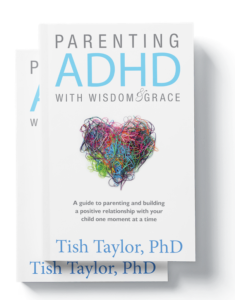
The Best Overland Park ADHD Testing Explains 4 Common Myths
Overland Park ADHD Testing: 4 Common Myths — There is a lot of misinformation out there about ADHD, and that is why often I, Dr. Tish Taylor, often recommend coming by the office to discuss a lot of the misinformation that has circulated about ADHD and its causes, diagnosis and treatment over the recent decades. The following are a few false assumptions we hear frequently regarding ADHD. If you
hear any of these incorrect statements, we are here to help with ADHD testing in Overland Park you will know for certain whether your child has ADHD. I will be sure to provide through explanations and clarifications about all your ADHD concerns.
Overland Park ADHD Testing — #1 “My preschooler is way too young to have ADHD.”
Many parents have the idea that a diagnosis cannot happen until a child becomes a certain age. However, the symptoms of ADHD happen very early. Overland Park ADHD testing and the diagnosis of the condition can happen in the early years. Attention-deficit/hyperactivity disorder is diagnosed when these problems get to the point where they are significantly and consistently interfering with a preschooler’s life, development, self-esteem and general functioning. This can happen at any time.
Overland Park ADHD Testing —
#2 “He’s just lazy and unmotivated.”
This is a common theme among children who have ADHD. Children with ADHD find it nearly impossible to focus in class. ADHD testing in Overland Park can help determine whether your child is having this issue, but lengthy tasks are nearly impossible for those students suffering from ADHD. This behavior sometimes presents itself as lazy, but in reality, these kids lack the ability to accomplish this task.
Overland Park ADHD Testing —
#3 “My child is a handful or a daydreamer, but that’s normal.”
With Overland Park ADHD testing, you will find that while all children act impulsively from time to time, this interrupts daily life to the point of interrupting success. It is clear that it interrupts their functionality daily, and that they struggle to manage their environment.
#4 – “Treatment for ADHD will cure it. The goal is to get off medication as soon as possible.”
Attention-deficit/hyperactivity disorder is a chronic condition that often does not entirely go away, but instead changes form over time. Many older adolescents and adults are able to organize their lives and use techniques that allow them to forego medical treatment, but it will never entirely go away. It is a medical condition. After the diagnosis with ADHD testing in Overland Park, the goal will be to work through each stage of childhood into adulthood. This helps your child manage their symptoms and treat them as needed accordingly.
If you have heard these myths or have said them yourself from time to time, you are not alone. If your child’s life has been interrupted on a regular basis and these symptoms regularly interfere with the quality of life, then you need to bring your child in for ADHD testing in Overland Park so we can make a plan together.

If you are struggling to find the right support for your child, contact me, Dr. Tish Taylor, Ph.D. I am a licensed child psychologist who specializes in Overland Park ADHD testing. My experience working in and with schools makes me a valuable resource for parents. I have a wide range of experience with diagnoses, including ADHD, dyslexia, executive functioning deficits, anxiety, mood, and behavior problems. I can also provide an autism assessment in Overland Park if that is where your concerns lie.
I utilize the latest research to create intervention methods to give your child and your family the support they need, including learning disability evaluations in Overland Park.

You can reach me at (913) 738-4177 or visit my website to learn more about the services I offer. You can also get in touch with me by filling out this contact form. I look forward to assisting you.
You can also receive guidance through my books focused on Fostering Connection and Parenting with ADHD. Click here to find out more about these publications and how they can be a major benefit to you and your child.

I also offer webinars focused on developing an intervention plan and how to get through to a child that struggles with listening. You can learn more about these two helpful classes by clicking here.


